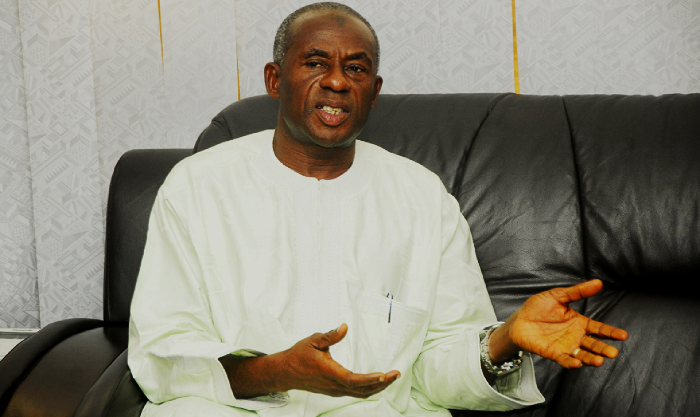
MMDAs urged to raise capital for infrastructure development
The Minister of Local Government and Rural Development, Alhaji Collins Dauda has encouraged metropolitan, municipal and district assemblies (MMDAs) to enter into partnerships with private entities to raise funding for capital-intensive infrastructure for economic development of cities and towns in the country.
Speaking at the 2016 Ghana Urban Forum (GUF), he said the partnership between MMDAs and the private sector would also ensure the creation of employment opportunities for the youth.
The Ministry of Local Government and Rural Development (MLGRD) instituted the forum as a national platform for urban development stakeholders to convene to discuss relevant development issues as a measure to promote good urban governance and development.
It was a direct response to the global call to offer practitioners, governments, opinion leaders, civil society and the ordinary Ghanaian the opportunity to have a say in the governance of their communities.
The forum was on the theme “Localising the New Urban Agenda: A catalyst for financing urban infrastructure for equitable economic growth in Ghana”.
Challenges of urbanisation
Addressing the participants in Sunyani last Tuesday, Alhaji Dauda said the forum was timely as it had come at a time the Local Economic Development (LED) policy had just been formulated to identify the potential resources of districts which could be adopted into full-fledged businesses for increased economic development.
He said one of the challenges of urbanisation was the enormous gap between the demand for urban infrastructure services and the capacities of MMDAs to finance urban infrastructure.
Alhaji Dauda explained that it was for that reason that funds had been made available to the MMDAs through the District Assemblies Common Fund (DACF), the District Development Facility (DDF) and other local development schemes to improve planning and investment in infrastructure to ensure financial autonomy of cities.
He added that through the Public-Private Partnership (PPP) policy, MMDAs were being encouraged to enter into partnerships with the private sector so that additional funds could be raised for infrastructure development in the various cities in the country.
Local Government Borrowing Bill
Alhaji Dauda stated that the government was also making efforts to pass the Local Government Borrowing Bill which was an important legislation that would give opportunity to the MMDAs to borrow from the capital market.
“The Local Government Borrowing Bill, when passed into law, would enable the MMDAs to borrow from the capital market to provide infrastructure and services for equitable socio-economic growth”, he explained.
He said since rapid urbanisation posed great challenges to the country, there was the need for effective management to ensure that the potential economic and social development arising from urbanisation were optimised to reduce poverty, improve the quality of life of the people and protect the environment.
“It is for this reason that the New Urban Agenda seeks to rethink urbanisation in terms of the provision of infrastructure to provide urban services and ensure equitable economic growth for all,” he stated.
Skewed Urban settlement
In an address read on his behalf, the Brong Ahafo Regional Minister, Mr Eric Opoku, said it was unfortunate that “our current situation depicts skewed urban settlement and development system with an increasing concentration of people, investment, infrastructure and economic activities very vibrant in few urban centres”.
That system, he observed, failed to promote equitable socio-economic development of the country’s vast rural areas.
“The phenomenon has left in its wake a huge drift from rural areas to urban centres for better conditions,” he said, adding that “in addition, the few urban areas are consistently reeling under pressures of increased demand for limited land, crime and security concerns, environmental deterioration, as well as emergence of slums”.
He, therefore, called for mechanisms that would enhance development of urban centres and rural areas in order to ensure that there were equal opportunities at all levels for the people.
Mr Opoku commended the MLGRD for the implementation of the street naming policy which he said would not only facilitate easy identification of sites and assist in revenue mobilisation but also lead to the rapid urbanisation of communities.
He, therefore, called on MMDAs, private organisations and businesses to take full advantage of the benefits associated with the policy towards the rapid urnabisation of their communities and equitable economic development.
